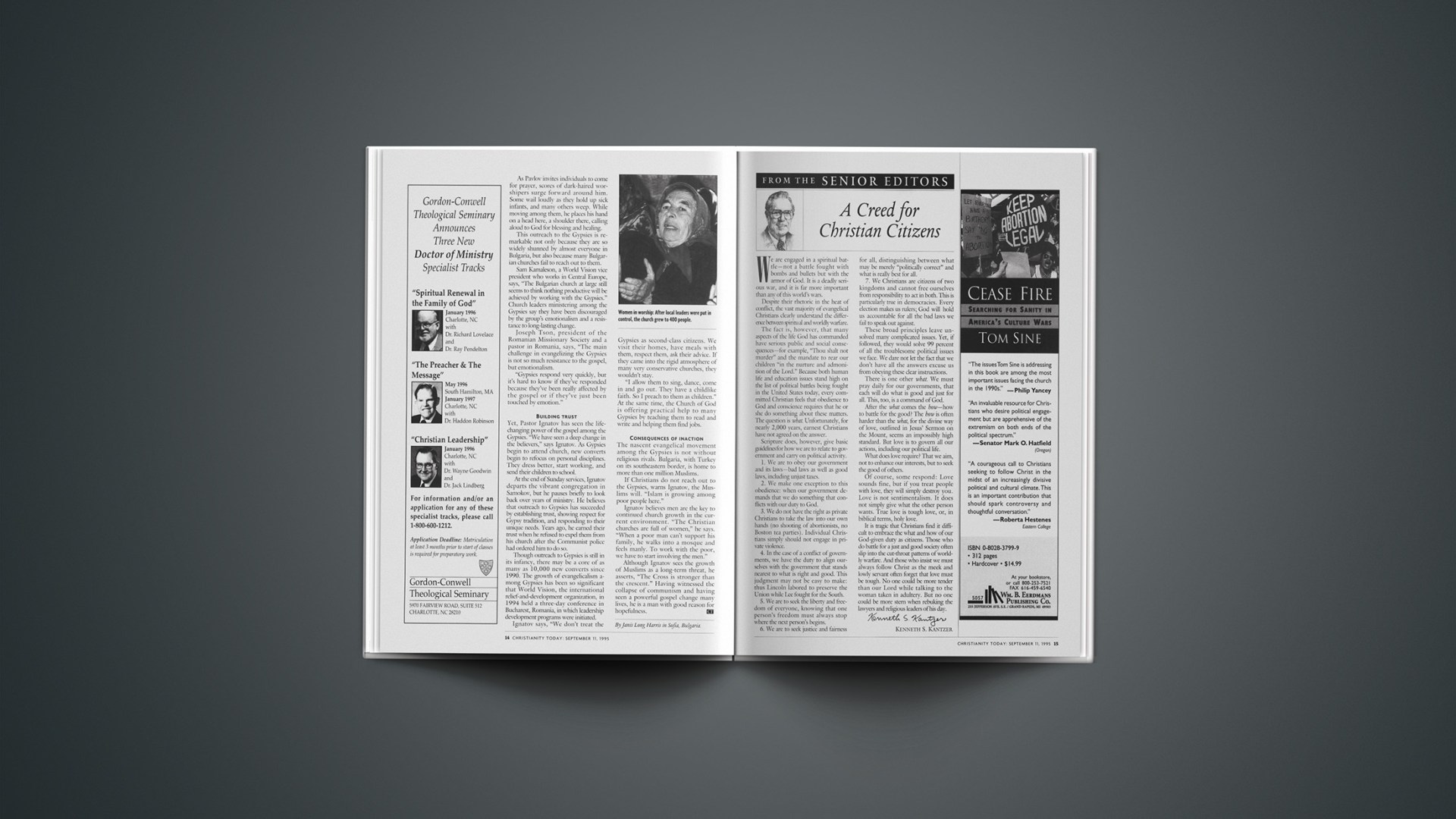We are engaged in a spiritual battle—not a battle fought with bombs and bullets but with the armor of God. It is a deadly serious war, and it is far more important than any of this world’s wars.
Despite their rhetoric in the heat of conflict, the vast majority of evangelical Christians clearly understand the difference between spiritual and worldly warfare.
The fact is, however, that many aspects of the life God has commanded have serious public and social consequences—for example, “Thou shalt not murder” and the mandate to rear our children “in the nurture and admonition of the Lord.” Because both human life and education issues stand high on the list of political battles being fought in the United States today, every committed Christian feels that obedience to God and conscience requires that he or she do something about these matters. The question is what. Unfortunately, for nearly 2,000 years, earnest Christians have not agreed on the answer.
Scripture does, however, give basic guidelines for how we are to relate to government and carry on political activity.
1. We are to obey our government and its laws—bad laws as well as good laws, including unjust taxes.
2. We make one exception to this obedience: when our government demands that we do something that conflicts with our duty to God.
3. We do not have the right as private Christians to take the law into our own hands (no shooting of abortionists, no Boston tea parties). Individual Christians simply should not engage in private violence.
4. In the case of a conflict of governments, we have the duty to align ourselves with the government that stands nearest to what is right and good. This judgment may not be easy to make: thus Lincoln labored to preserve the Union while Lee fought for the South.
5. We are to seek the liberty and freedom of everyone, knowing that one person’s freedom must always stop where the next person’s begins.
6. We are to seek justice and fairness for all, distinguishing between what may be merely “politically correct” and what is really best for all.
7. We Christians are citizens of two kingdoms and cannot free ourselves from responsibility to act in both. This is particularly true in democracies. Every election makes us rulers; God will hold us accountable for all the bad laws we fail to speak out against.
These broad principles leave unsolved many complicated issues. Yet, if followed, they would solve 99 percent of all the troublesome political issues we face. We dare not let the fact that we don’t have all the answers excuse us from obeying these clear instructions.
There is one other what. We must pray daily for our governments, that each will do what is good and just for all. This, too, is a command of God.
After the what comes the how—how to battle for the good? The how is often harder than the what, for the divine way of love, outlined in Jesus’ Sermon on the Mount, seems an impossibly high standard. But love is to govern all our actions, including our political life.
What does love require? That we aim, not to enhance our interests, but to seek the good of others.
Of course, some respond: Love sounds fine, but if you treat people with love, they will simply destroy you. Love is not sentimentalism. It does not simply give what the other person wants. True love is tough love, or, in biblical terms, holy love.
It is tragic that Christians find it difficult to embrace the what and how of our God-given duty as citizens. Those who do battle for a just and good society often slip into the cut-throat patterns of worldly warfare. And those who insist we must always follow Christ as the meek and lowly servant often forget that love must be tough. No one could be more tender than our Lord while talking to the woman taken in adultery. But no one could be more stern when rebuking the lawyers and religious leaders of his day.
Copyright © 1995 Christianity Today. Click for reprint information.
ctcurrmrw5TA015595y










